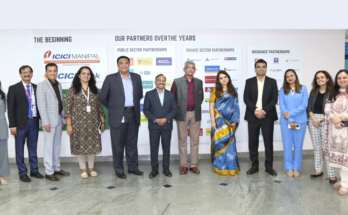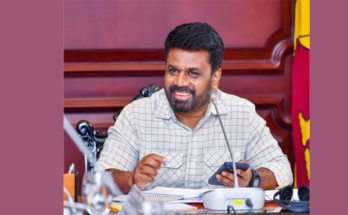New Delhi: India and Sri Lanka today exchanged key agreements aimed at enhancing bilateral relations during the official visit of Sri Lankan President Anura Kumara Dissanayake to New Delhi. The agreements include a protocol amending the existing Double Taxation Avoidance and Prevention of Fiscal Evasion pact, as well as a Memorandum of Understanding (MoU) on training and capacity-building initiatives for Sri Lankan civil servants.
The exchanges followed bilateral talks between Prime Minister Narendra Modi and President Dissanayake. The two leaders discussed issues of mutual interest and explored avenues to further deepen cooperation.
One of the significant announcements made during the visit was the grant assistance of $14.9 million for a signalling project on the Maho-Anuradhapura section of Sri Lanka’s railway network. Additionally, a financial assistance scheme was unveiled to support 100 new students annually from the University of Jaffna and Eastern University, with aid extending until the completion of their academic courses.
Both leaders highlighted the growing political interactions between the two nations, particularly in the last decade. They agreed on the need to continue and intensify political engagements at both leadership and ministerial levels. Regular parliamentary exchanges were also emphasized to promote democratic values and share institutional best practices.
In his statement, Prime Minister Modi expressed his pleasure that President Dissanayake had chosen India as his first foreign visit after assuming office. Modi stated that the visit would serve to create new momentum in India-Sri Lanka relations. He also reaffirmed India’s continued support, mentioning that India has provided $5 billion in Lines of Credit and grant assistance to Sri Lanka. Modi noted the historical and cultural ties between the two nations, citing the shared significance of the Pali language and its recognition as a Classical language in India, a move also celebrated in Sri Lanka.
Addressing a key issue, both leaders discussed the livelihoods of fishermen from both countries, agreeing to adopt a humanitarian approach to resolving challenges faced by the fishing communities.
In his remarks, President Dissanayake assured Prime Minister Modi that Sri Lanka would not allow its territory to be used in any way that could harm India’s interests. He also spoke about the unprecedented economic crisis Sri Lanka faced two years ago, emphasizing the vital support provided by India during that period and in the subsequent debt restructuring process. Dissanayake expressed his joy at visiting India on his first foreign trip as president, calling it an important step in furthering bilateral cooperation.
The Sri Lankan President was given a ceremonial reception at the forecourts of Rashtrapati Bhavan, where he was welcomed by President Droupadi Murmu and Prime Minister Modi. Dissanayake also paid floral tributes to Mahatma Gandhi at Rajghat, honoring India’s Father of the Nation.
During his three-day visit, President Dissanayake will meet with President Murmu and Vice President Jagdeep Dhankhar. He is also scheduled to visit Bodh Gaya, Bihar. This marks the first bilateral visit of President Dissanayake to India since assuming office.
The Ministry of External Affairs indicated that the visit is expected to further strengthen multi-faceted cooperation between the two countries, particularly in the fields of trade, investment, and regional security. The trade between India and Sri Lanka reached $5.5 billion in 2023-24, underscoring the growing economic ties. Sri Lanka remains India’s closest maritime neighbor in the Indian Ocean Region and plays a key role in Prime Minister Modi’s vision of a secure and stable region under the SAGAR (Security and Growth for All in the Region) and India’s Neighbourhood First policy.
President Dissanayake is also scheduled to participate in a business event in Delhi to promote stronger commercial and investment links between India and Sri Lanka.




